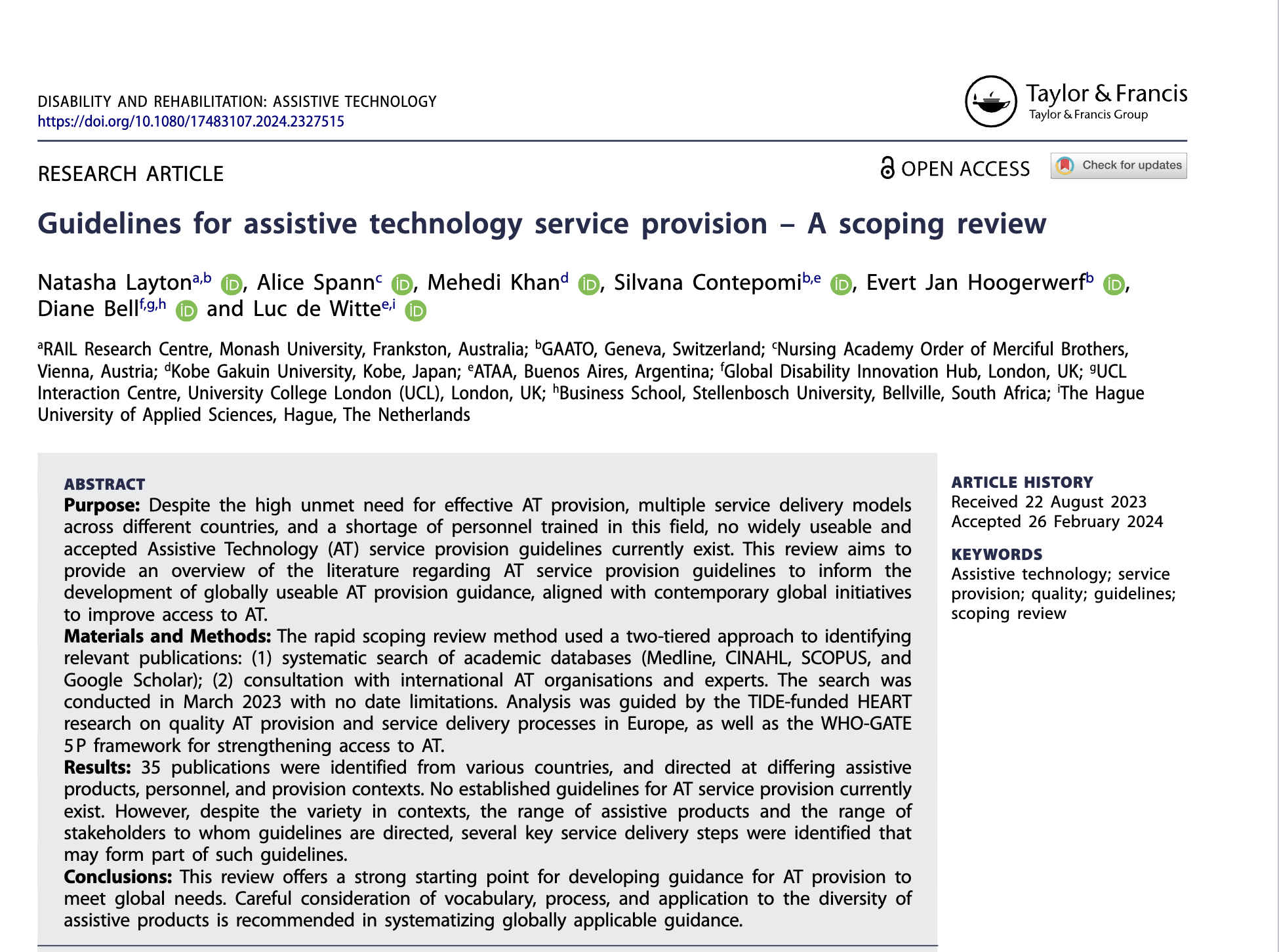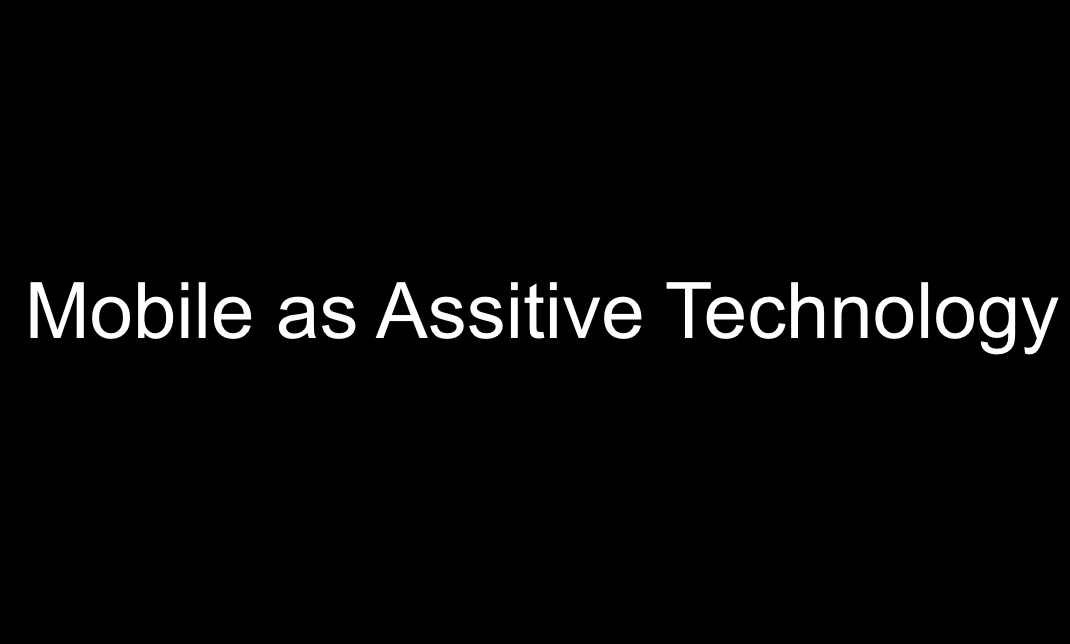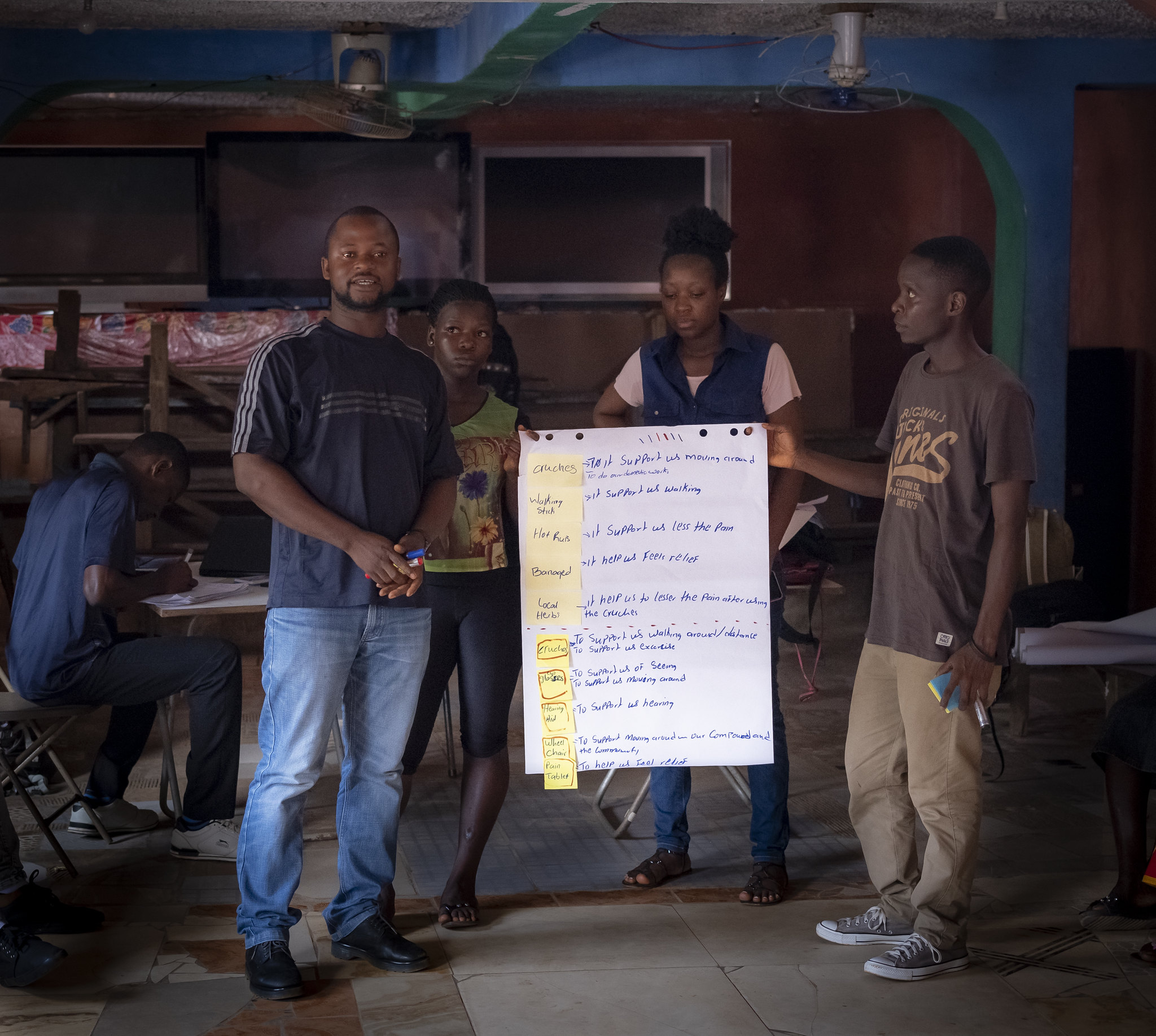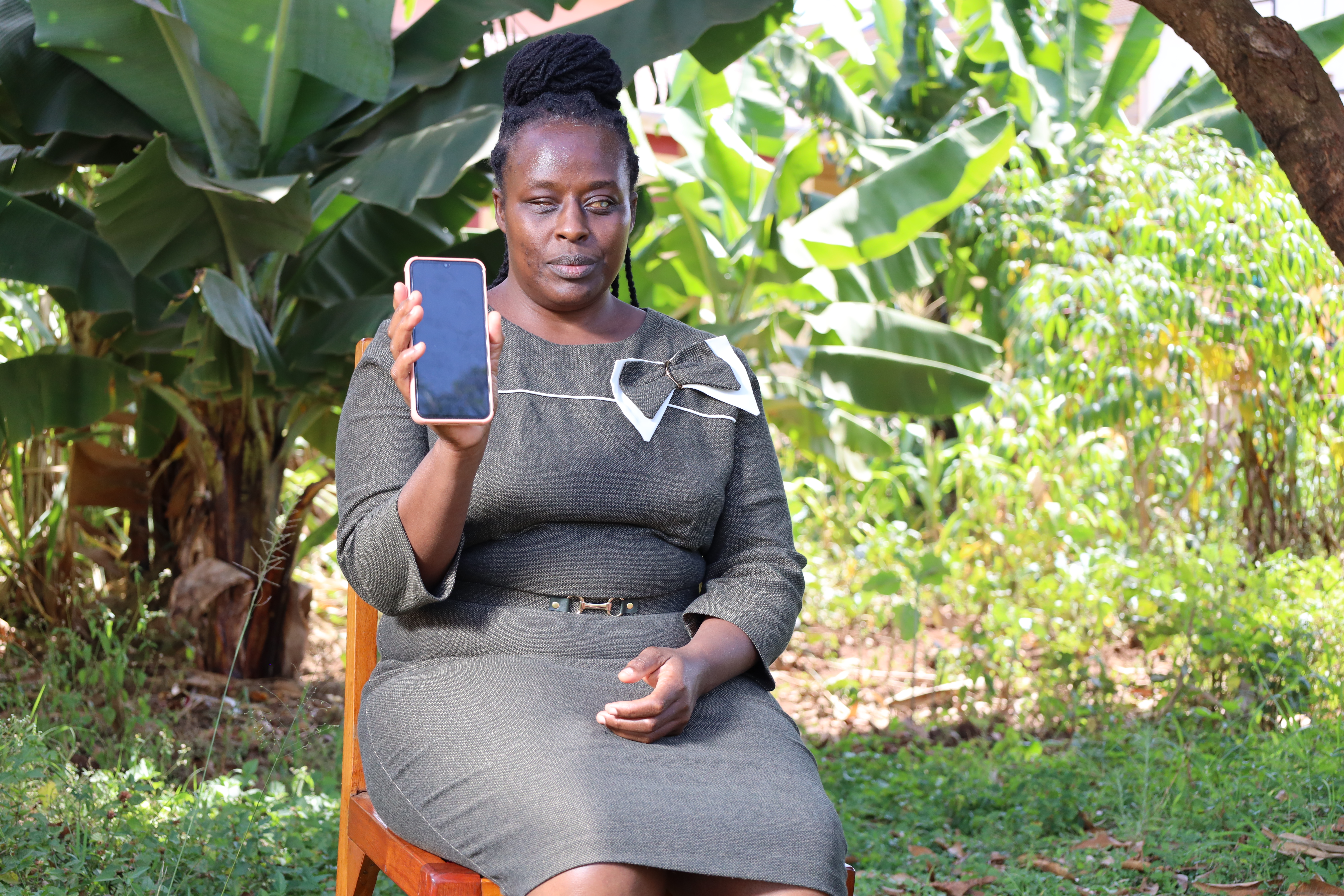Led by GDI Hub at UCL. Framing the economics of AT around a mission-led approach; developing a return on investment framework and researching what works to overcome stigma as well as focusing on the support to the development of the Global Report on Assistive Technology, evidence of local production systems for AT in LMICs, the exploration of early child mobility in LMIC and the development of a series of virtual live labs. Partners include: IIPP, All Institute, Leonard Cheshire Disability, WHO, ISPO, LSHTM, CBM International, GAATO
Credits: Angus Stewart
Humanitarian
In 2020, a new strand of humanitarian research was incorporated into this sub-programme intended to:
- Improve understanding of the need for AT in humanitarian settings
- Compile evidence of current provision and practice across a variety of humanitarian contexts
- Provide case study examples of ‘what works’
- Provide recommendations for action by key stakeholders, particularly global humanitarian coordination bodies and actors
- Disseminate findings through working papers and conference attendance
Latest
-

Guidelines for assistive technology service provision – A scoping review
Natasha Layton, Luc De Witte, Alice Spann, Evert Jan Hoogerwerf, Silvana Contepomi, Mehedi Khan Kobe, Diane BellMarch 12, 2024GlobalAcademic Research PublicationsDespite the high unmet need for effective AT provision, multiple service delivery models across different countries, and a shortage of personnel trained in this field, no widely useable and accepted Assistive Technology (AT) service provision guidelines currently exist. This review aims to provide an overview of the literature regarding AT service provision guidelines to inform the development of globally useable AT provision guidance, aligned with contemporary global initiatives to improve access to AT.
-
A Journey with Technology
Harrison KamauMarch 8, 2024KenyaWhat makes Felista's adjustment remarkable is the user-friendly design of her device, especially its short applications that simplify tasks, such as efficient navigation. The training she received on utilizing voice commands with Google has proven to be a positive change, enabling her to effortlessly send voice messages.
-
Digital assistive technology - Joseph's story
Harrison KamauMarch 8, 2024KenyaJohn Mwangi's story serves as a realistic portrayal of the intersection between technology and disability, showcasing the everyday impact on individuals' lives. It echoes a larger narrative unfolding on a global scale, where smartphones are emerging as powerful tools to transform the lives of persons with disabilities.
-

Mobile as AT Kenya
Global Disability Innovation Hub, Harrison KamauFeb. 28, 2024KenyaThis project measures how mobile phones act as an assistive technology and how the technology alongside training can transform lives.
-

Spotlight on Sierra Leone – Meet Sulaiman
KoalaaFeb. 27, 2024Sierra LeoneSulaiman is 28 years old 'top-up' seller for mobile phone sim cards, he lives with his wife and children in Makeni, Sierra Leone. Receiving a Koalaa ALX sleeve has been his first experience with prosthetics and one of the ways he loves to use it is to hold his baby daughter.


